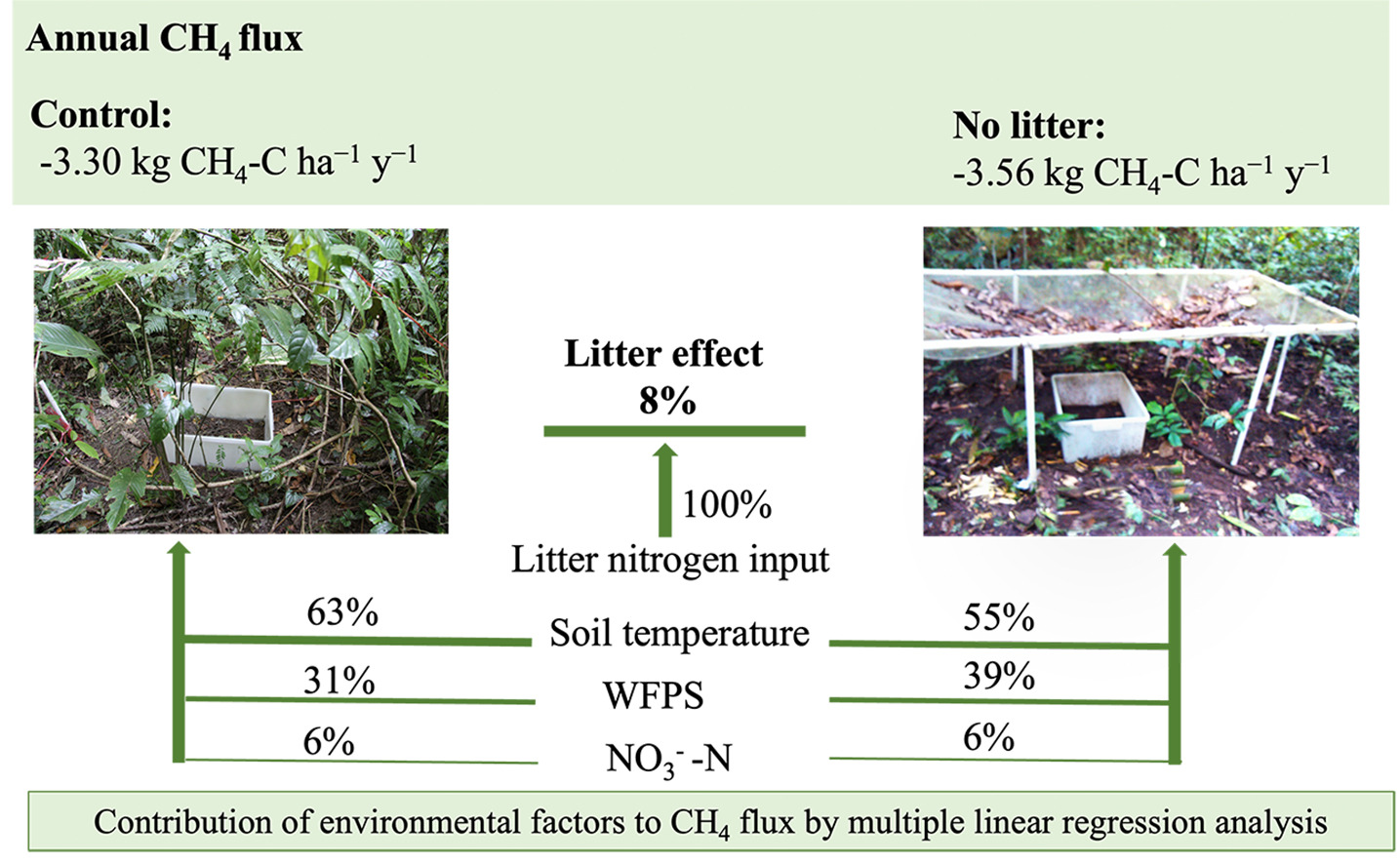Methane (CH4), a major greenhouse gas in the atmosphere, is mainly produced by the anaerobic decomposition of organic matter in soil. Litter comprises a major nutrient source when decomposed via soil microbes and functions as subtract that limits gas exchange between soil and atmosphere, thereby restricting methane (CH4) uptake in soils. However, the mechanisms of litter input and decomposition effect on the soil CH4 flux in tropical forests need to be better understood.
In a study published in Science of The Total Environment, researchers from Xishuangbanna Tropical Botanical Garden (XTBG) evaluated the effect of litter layers and litter decomposition dynamics on CH4 uptake on tropical rainforest soils.
The researchers performed a litter-removal experiment, measuring litter dynamics (litter production and decomposition) and soil physicochemical properties in a tropical rainforest in Xishuangbanna. They then investigated the effects of litter input and decomposition on the CH4 flux among forest ecosystems through a literature review.
They found that temporal variations in CH4 uptake were mainly regulated by soil temperature, soil moisture and soil nitrate content. Litter removal did not change the mechanisms responsible for CH4 flux, but it did increase CH4 uptake by eliminating exogenous nitrogen inputs to soil that were derived from litter decomposition.
Based on the literature review about litter effect on soil CH4 around world forests, the researchers found that the effect of litter dynamics on CH4 uptake was regulated by litter-derived nitrogen input and the amount soil inorganic nitrogen content. Litter had a more significant effect on CH4 uptake during the wet season than during the dry season, possibly because the higher nitrogen input from litter decomposition occurred during the rainy season.
“Our study suggests that the variation in CH4 uptake in response to litter removal in forest ecosystems is likely more regulated by soil inorganic nitrogen content than the properties of litter layers themselves,” said ZHOU Wenjun of XTBG.
Contact
ZHOU Wenjun Ph.D
Key Laboratory of Tropical Forest Ecology, Xishuangbanna Tropical Botanical Garden, Chinese Academy of Sciences, Mengla, Yunnan 666303, China
E-mail: zhouwj@xtbg.ac.cn

Litter-derived nitrogen reduces methane uptake in tropical rainforest soils. (Image by GAO Jinbo)

